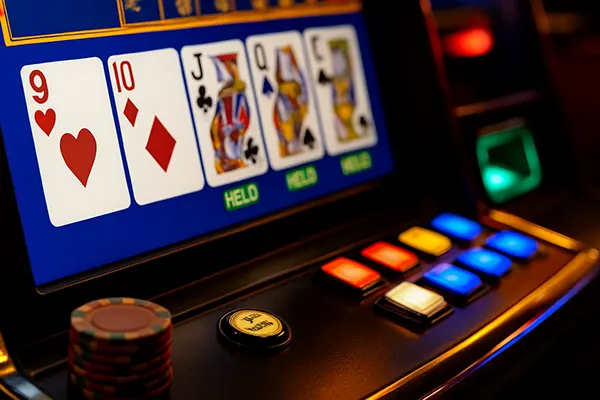
Why Video Poker Is Considered the Most Profitable Casino Game
Video poker has long stood out among other gambling games thanks to its unique combination of luck and skill. While slot machines and roulette rely entirely on chance, video poker gives players the ability to influence the outcome through strategy. This distinct feature makes it one of the most profitable casino games when approached with knowledge and discipline.
The Mathematical Advantage of Video Poker
One of the main reasons video poker is considered highly profitable lies in its return-to-player (RTP) rates. Many popular variations, such as Jacks or Better, offer RTP values exceeding 99% when optimal strategies are applied. This is far higher than the average returns of slot machines, which typically range from 92% to 96%.
Another critical aspect is the low house edge. In games like Full Pay Deuces Wild, the house edge can be as low as 0.5% or even less, meaning that with perfect play, players can almost break even in the long term. This mathematical structure allows skilled players to maintain their bankrolls more effectively.
Furthermore, video poker provides transparency. Unlike slots, where results are hidden behind complex algorithms, video poker outcomes are based on standard 52-card decks. This allows players to calculate odds precisely and make informed decisions, which enhances the potential profitability.
Understanding RTP and House Edge
Return-to-player (RTP) represents the percentage of all wagered money a game pays back to players over time. In video poker, high RTP is achievable only if players follow optimal strategies consistently. Deviating from these strategies increases the house edge significantly.
The house edge is the percentage of each wager the casino expects to keep. While most casino games have fixed edges, video poker’s edge depends heavily on player decisions. This makes mastering strategy essential for maximising profits.
By learning and practising optimal strategies, players can reduce mistakes that lead to losses, effectively converting video poker from a game of chance into a game of skill. This element of control is what sets it apart from other gambling options.
The Strategic Depth of Video Poker
Another reason video poker is seen as profitable is its reliance on strategy. Unlike slots, where outcomes cannot be influenced, video poker rewards analytical thinking and decision-making. Every hand presents choices—whether to hold or discard certain cards—and these choices directly affect the outcome.
Comprehensive strategy charts are available for each video poker variant, showing the mathematically correct moves for every possible hand. By following these charts, players can approach the game like a professional, minimising errors and improving their expected return.
With regular practice, players can memorise the correct plays, reducing hesitation and maximising efficiency during gameplay. This skill development transforms video poker into a game where knowledge and preparation significantly impact results.
Importance of Consistency in Strategy
Applying strategy sporadically will not lead to long-term success. The profitability of video poker depends on consistently making optimal choices over thousands of hands. Even minor deviations can quickly erode the mathematical edge players strive to maintain.
Successful video poker players often study and practise extensively before wagering real money. This preparation enables them to execute their strategies under pressure, avoiding common mistakes driven by emotions or fatigue.
Consistency also helps manage bankrolls more effectively. When decisions are guided by strategy rather than impulse, losses become more predictable and manageable, allowing players to endure variance and stay profitable over time.

Bonuses, Comps, and Bankroll Management
Beyond strategy and RTP, external factors such as bonuses and player rewards contribute to video poker’s profitability. Casinos frequently offer loyalty points, cashback, and other incentives for regular play. These rewards effectively boost overall returns, especially for high-volume players.
Proper bankroll management is equally crucial. Because video poker has lower volatility than slots, players can sustain longer sessions on smaller bankrolls, reducing the risk of rapid losses. Structured bankroll plans help players handle losing streaks without chasing losses.
Combining bonuses with disciplined bankroll strategies can push video poker returns above 100% in rare cases, especially during promotions. This unique potential makes video poker attractive for players seeking long-term profitability.
Maximising Rewards Without Risk
To fully benefit from bonuses, players must understand the terms and conditions. Wagering requirements, eligible games, and time limits can significantly affect the real value of rewards. Choosing bonuses that align with video poker playstyle is vital.
Tracking loyalty points and promotions allows players to schedule sessions when rewards are highest. This can include double-point days or exclusive cashback offers, which further increase the value of every wager.
However, bonuses should never encourage reckless play. They are tools to enhance returns, not excuses to bet beyond one’s limits. Responsible bankroll management ensures that rewards remain a supplement rather than a necessity.
